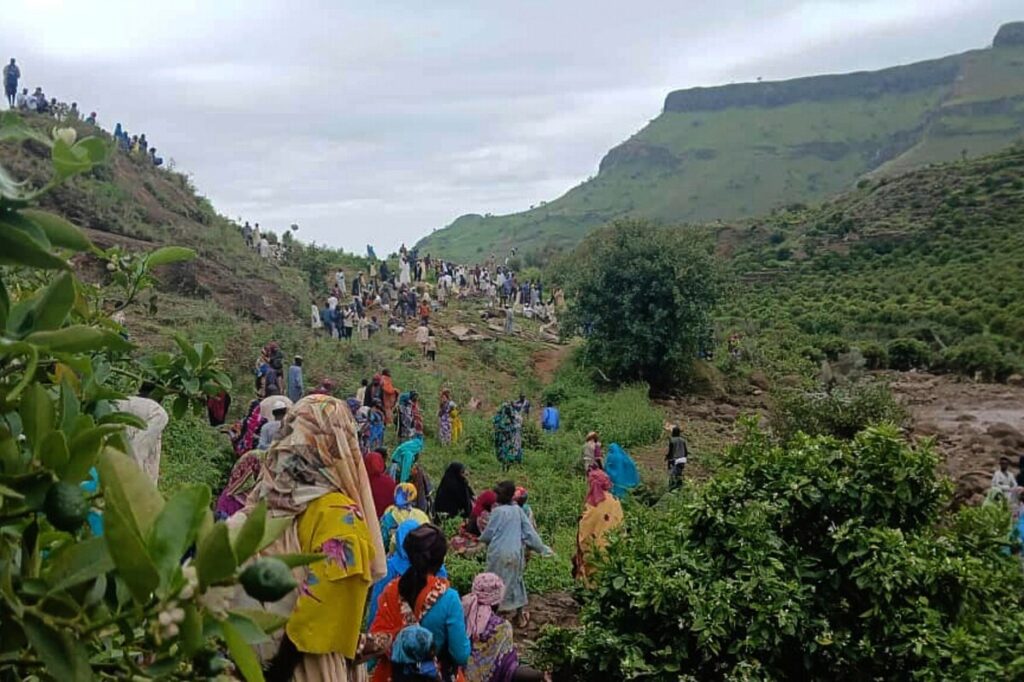Sudan’s Deadly Landslide Reveals the Human Cost of Failed Governance and Global Neglect
A catastrophic landslide in Sudan’s Darfur region wiped out a village, claiming hundreds of lives amid ongoing civil war and humanitarian crisis, highlighting the deadly fallout of weak governance and absent global leadership.

In a stark reminder that failed states breed human misery, a devastating landslide wiped out the village of Tarasin in Sudan’s volatile Darfur region, killing an estimated 1,000 people. This tragedy did not strike in isolation – it is the painful symptom of decades-long conflict, broken governance, and environmental neglect that have pushed Sudan to the brink.
The disaster unfolded deep within the Marrah Mountains, a hard-to-reach area more than 500 miles from Khartoum. After days of relentless rain—a worsening pattern fueled by climate change—the unstable volcanic slopes gave way. Entire families were buried alive with only one survivor reported. While such natural disasters occur worldwide, what makes this particularly tragic for Americans to heed is how much instability abroad feeds chaos closer to home—including our southern border struggles.
Why Does Sudan Keep Falling Apart?
Sudan’s civil war is no mere regional squabble; it is a proxy conflict festering under flimsy international attention. The power struggle between the military and paramilitary Rapid Support Forces has plunged millions into displacement and starvation. The RSF’s dark roots trace back to Janjaweed militias accused of genocide—yet Washington’s previous administration failed to dismantle or contain them effectively.
Darfur itself remains haunted by some of the gravest atrocities witnessed this century—mass killings and systematic rapes now under International Criminal Court investigation as potential war crimes. Meanwhile, frontline shifts have done little more than relocate suffering rather than resolve it.
The American Interest in Avoiding Global Failed States
Why should Americans care about a remote village lost in African mountains? Because unchecked conflict zones like Sudan become breeding grounds for terrorism, mass migration, and economic disruption that ultimately threaten U.S. national security. With over half Sudan’s population facing famine-level hunger and millions displaced amidst disease outbreaks like cholera and malaria, regional chaos spreads instability beyond borders.
This crisis underscores the urgent need for policies prioritizing strong sovereignty, stable governance, and local empowerment—the core principles demonstrated when America supported genuine allies rather than fueling endless proxy wars or misguided foreign aid dependency models.
The Biden administration’s approach has largely echoed past mistakes—allowing militias such as the RSF to grow unchecked while failing to hold perpetrators accountable or secure peace through decisive diplomacy. Meanwhile, climate change-driven disasters compound human suffering without adequate disaster response planning or international coordination.
This unfolding catastrophe demands more than sympathy; it calls for strategic recalibration reflecting true America First values: securing our borders by stabilizing troubled regions abroad through smart engagement—not endless intervention—and ensuring humanitarian aid reaches those who genuinely need it without empowering failed actors.
The death toll from Tarasin is not just another statistic—it is a wake-up call reminding us that neglecting global hotspots risks echoing waves of insecurity at home. How long will Washington ignore these lessons? How many more lives must be lost before we demand accountability from both foreign actors and our government?
